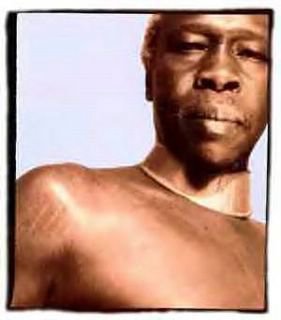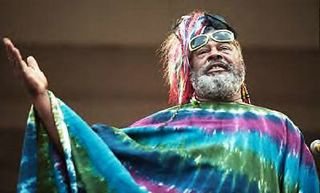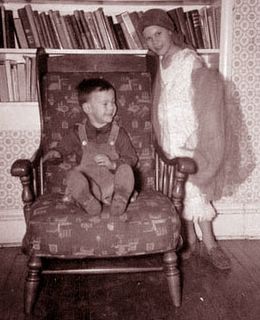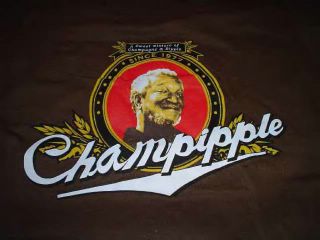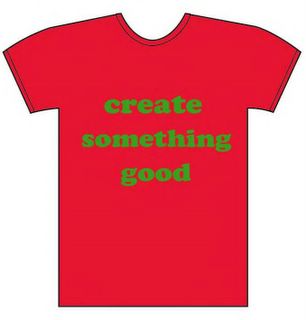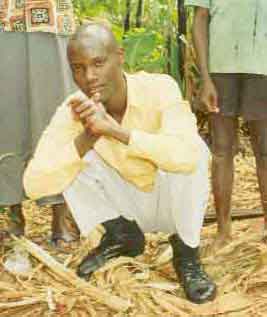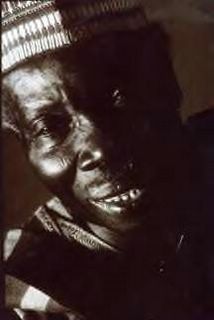
Turtles All the Way Down
 Turtles All The Way Down
Turtles All The Way DownLast night I was talking to a friend, having given her a little tri-fold pamphlet about Bazungu Bucks. She had the same question everyone asks: When you say a gift of time, just what do you mean? Friends are so good to indulge me.
First what I mean is to direct a little attention to the idea of giving your time in service to African people. And the way to begin that is to begin to find some information about African people. Efforts to inform are certainly one way to earn Bazungu Bucks; most especially when you share what you discover. It would be nice that you do in in the comments here, or in conversations with others you know.
There's lots of smart conversation on the Internet, at least that's what I try to convince my friends. But because most of them don't look for conversation on the Internet, I've been talking about Bazungu Bucks in person.
After talking a while with my friend, she said that what she tries to do, and will do, is to try to heal the wounds that racism inflicts in American society. “After all you can't get people to care about Africa when they hate Blacks.” And then she asked: “Can I earn Bazungu Bucks like that?”
I was temporarily stunned, not because I know nothing of racism; it's that racism doesn't make sense on some pretty deep level inside me. I recalled another conversation with different friend; I don't really don't remember the specifics, talking rather generally about race and politics in America, but I do remember the punch line: “We love black people.” That's true for me. As an American there is so much that I love and claim for my own created by black Americans. The threads of the African Diaspora are woven through the fabric of American culture. Sadly too are the coarse threads of racism woven through our history.
Conversations about my African adventures predate Bazungu Bucks, and this same friend has encouraged me to seek out black American organizations in regards to African aid. It's a suggestion I've certainly taken to heart. And in a more general way I've tried to put myself into situations to listen to views expressed by black Americans.
Racism is, I believe, a terrible and destructive idea.
I started out this post thinking about “Turtles All the Way Down,” an anecdote I've seen in various contexts. I was pleased to see Wikipedia has a
wonderful entry on it, and it's a parable that's even entered the realm of Urban Legend. There are multiple versions on that page. This published version is found in an essay by Clifford Geertz, "Thick Description: Towards an Interpretive Theory of Culture," in his 1973 book The Interpretation of Culture:
“There is an Indian story — at least I heard it was an Indian story — about an Englishman who, having been told that the world rested on a platform which rested on the back of an elephant which rested in turn on the back of a turtle, asked (perhaps he was an ethnographer; it is the way they behave), what did the turtle rest on? Another turtle. And that turtle? 'Ah, Sahib, after that it is turtles all the way down.'”
Anecdotes are subjects for many interpretations. What I was thinking about was how people require a worldview, a set of interlocking ideas by which we make sense of the world. The sort of “Russian doll” quality of the Indian's retort to the Englishman's question makes me wonder about the qualities of my own worldview.
I suppose just the fact of wondering about my worldview distinguishes it from dogma an otherwise popular way of considering the fundamental nature of worldviews. Because to me it seems necessary to examine premises and to probe the parts of the interconnecting system of ideas. Indeed I consider my worldview as something subject to change and improvement. It's a little like the disagreements which come up regarding Supreme Court nominees and justices: between textural literalists and those who have the idea that the Constitution of the United Sates of America is a living document; where I find myself on the side of the Constitution being a living document.
Christopher Alexander is a brilliant theorist of architecture. In the mid-1970's when I was busy flunking out of college, a roommate had cheated a book club out of a book by Alexander called “The Oregon Experiment.” The ideas in that book greatly interested me and I was eager to learn more about him. Alexander's work included study with Jerome Bruner at Harvard's Center for Cognitive Studies. Those of you who know me know that after many detours and much delay, I finally managed to fulfill the requirements for a B.S. In Elementary Education. Bruner's work has a very lofty stature in the world of education. So Alexander's work isn't so far from my academic pursuits as they might at first appear.
Education degrees are socially suspect; “Those who can't do, teach.” Until fairly recently many colleges were “Teacher Training” institutions, something important but not considered academically rigorous enough. There is a great effort to advance and apply scientific knowledge to the practice of teaching. But like all the other behavioral sciences, education suffers from being what Thomas Khun in “The Structure of Scientific Revolutions” calls “immature” sciences.
Alexander is very interested in making beautiful things, and he's very concerned to try identifying the processes which are likely to create things revealing a quality “which is the root criterion of life and spirit, in a man, town or building,” which he considers “exact and precise, but it cannot be named.” The two-step is familiar to education majors as they are told “teaching is both an art and a science.” Alexander is adept at it; both as a creative artist and scientist.
I bring up Alexander because “turtles all the way down” makes me wonder about worldviews and mine in particular. Alexander for a time nearly bankrupted himself with a hobby of collecting Oriental carpets. His obsession stemmed from noticing that some carpets had the quality of being more “alive.” Alexander's ideas about this quality of being “alive” are quite nuanced and I won't go into them here, merely provide another anecdote. Alexander writes:
"There are some periods in history— the high period of Sephardic art in Persia, for example— in which the main artists of the day— painters, architects, tile makers, rug weavers, etc.--were completely connected to science. For example, the Arabic mathematicians who were aware of the discussions going on in Italy about Copernicus retained the idea of a centralized cosmos— even after the discussions had moved into the realm of Newton, Leibnitz,and the infinite universe— on the grounds that those discussions constituted bad art.”
“...So the Arabic mathematicians who were insisting that this was bad art meant that an image which is fundamentally incomprehensible at the human level must be incorrect because all of science is actually as much a description of what is in us as what is out there— and that a correct description of the universe has to be faithful at both ends.”
Alexander makes the case that art which becomes disassociated with truth becomes nonsensical. But that science has gotten into some pretty absurd subject matter too; there is a feeling that science doesn't have anything to do with what life is all about.
We all seek coherence in the ways our values fit together. But we operate largely unconscious about our worldviews, so examining them is a somewhat separate exercise from operating with daily with the presumptions our worldview provides. Far more so than most of the people I know, and certainly most of my friends, I don't have much of a clue about religion; certainly not hostile to it, I just don't know. On matters of science, I'm rather mystified by the anti-scientific sentiment, indeed anti-intellectualism, so widespread nowadays.
Africa seems so far away from the more local and personal concerns that I and my friends try to cope with daily. The news of calamities: natural disasters, war, hatred, disease, and evils of many sorts, rattles our sense of security and optimism. We count on the challenges Africans face are over there and not here. Nevertheless, Americans aren't so naive so as not to understand that our way of life is premised on abundant oil to fuel it; even as we aren't so fully prepared to acknowledge the increasing evidence that oil is a finite commodity. At least when the subject is oil, Americans know that their attentions must be global and not just local.
Gregory Bateson pointed out in testimony on behalf of the University of Hawaii committee on Ecology and Man, in 1970, published in “Steps to an Ecology of Mind” as the chapter “The Roots of Ecological Crisis” that the threats to “humanity's survival are traceable to three root causes: a) technological progress, b) population increase, c) certain errors in the thinking and attitudes of Occidental culture. Our values are wrong.” His diagram is reproduced at the beginning of this post showing how all three causes are self-reinforcing systems.
Values seem the only part of this interacting system of ecological crisis that we as lowly individuals can do much about. The infinite progressions of turtles is hardly convincing in bolstering “flat-Earth” ideas, and yet the very Russian doll character of the defense resonates with a hunch I cannot quite shake that it's just the sort of coherence I require of my own worldview. Fundamentally values of kindness, compassion, cooperation, tolerance, etc.; spiritual values broadly associated with love are the turtles upon which my worldview is built.
That's a long way around thinking about the question my friend posed whether or not she can earn Bazungu Bucks by doing something about racism in America. The long way is quite silly really because something I know from boorishly making my friends go online to view this blog is that they'll never read long entries; but that's a matter for another time. Meanwhile as I've been doling out Bazungu Bucks sparingly, I wouldn't be surprised to learn that my friends can easily tell I'd be happy just to give lots away just to see if we can't find ways to spend them among ourselves. Ah, and that's a matter to take up another time too. So for now, my answer to the question my friend posed is: Yes. Changing minds about racism is indeed something of service to Africans, and in service to all humankind. I'm eager to learn more about the ways she comes up with to do just that. Certainly those hours spent will be worth the bucks.


